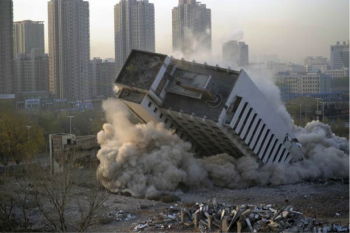
Chinese property prices: it ain’t Sydney or Melbourne
Hot on the heels of data showing GDP in China is growing at its slowest rates since the GFC, the Chinese property industry displayed signs of continuing deceleration. Housing sales have declined 10.8 per cent by value from a year earlier in the first nine months of 2014, and average city home prices declined 1.3 per cent in September – the first fall in nearly two years.
New home prices fell month-on-month in 69 of the 70 major cities, and according to China’s National Bureau of Statistics (NBS), the only city that saw stable prices last month was the southern city of Xiamen. The worst decline was experienced in the eastern city of Hangzhou, where prices fell nearly 8 per cent in September from a year before.
China’s central bank has instructed banks to relax rules to allow more second-home buyers to qualify for cheaper loans. While developers are confident such measures will be beneficial to their businesses, the latest batch of results cannot reflect the changes made only last month.
China Vanke Co, China’s largest property developer, released its third quarter results recently, revealing relatively benign revenue growth after fewer projects than planned were developed. The company also reported a small rise in net profit of 2.8 per cent, but declining margins on a 16 per cent increase in sales by floor area. In other words, to get the sales – prices were cut.
The company noted: “In the short-term, the situation of new supply exceeding transactions remains unchanged and inventories are rising.” Analysts now expect fourth quarter gross margins to decline further.
China Vanke Co’s results, however, are not reflected elsewhere in the market. Being the largest developer, Vanke can access superior funding and is thus better able to endure declining property prices and the excess supply of homes.
The country’s fifth-largest developer, China Overseas Land & Investment Ltd has not been so fortunate, reporting a near 50 per cent plunge in the third quarter while also warning of further downside potential.
According to data vendor Wind Information Co, more than 50 per cent of the developers that have reported so far have announced either a fall in profit or a loss for the latest quarter.
The property sector contributes nearly 15 per cent to the Chinese economy and retail sales commands another meaningful proportion. Already the decelerating property market has adversely impacted demand in almost 50 Chinese industry sectors ranging from cement to furniture. If the wealth effect observed in the Western World is also alive in China, then expect declining property prices to continue to have an impact on retail sales, which in turn will flow through to GDP and ultimately iron ore and coal demand as investment turns deeper into the red.